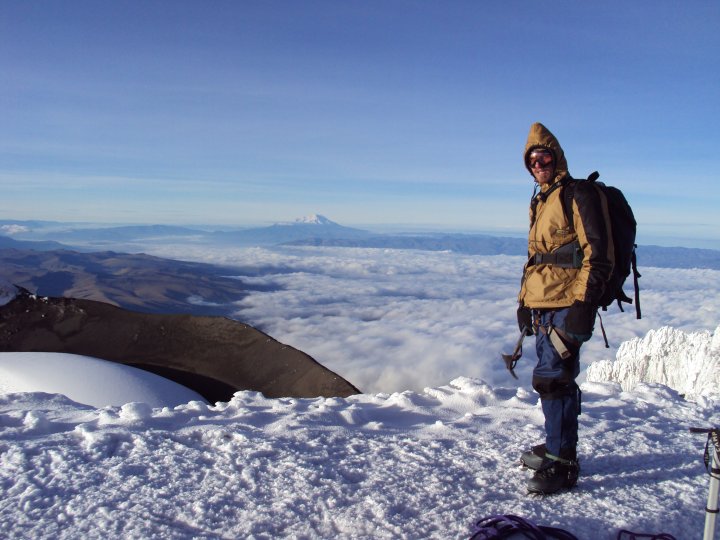So this is what seems to have happened. The Assembley (legislative body) here passed a law that reduced the benefits and pension of members of the police and military. When President Correa did not veto the bill the police went on strike. The strike originally started in Quito and Guayaquil. It looks as if the police in Guayaquil had second thoughts when they saw how their city was being looted, robbed, and generally torn apart. They went back to work shortly thereafter.
The strike took a different turn early here in Quito when the police captured the president and began holding him in a military hospital. At this point people began calling it a coup. But it ended up being a pretty half-assed coup, which is only to be expected here in Ecuador. Communications were never cut; leading figures were allowed to publicly oppose what was happening; people were allowed to assemble in great masses to chant and hold vigils in support of the president; and even the president himself was allowed to communicate by phone with apparently whomever he wanted including the press and Hugo Chavez. I have to say I was a little disappointed with the execution and professionality of the coup.
What the police did mostly was to set up a barricade of tear gas around the hospital and a bunch of burning-tire roadblocks. They also took control of the airport for a short time.
What exactly they were intending to do without the backing of the military, I'm not sure. For a short time it was unclear to me whose side the military was on. But once the military declared for the president, the president order an "estado de excepcion," or a state of emergency, in which the military sent several units into Quito to restore order and, as it turns out, to battle the police.
A little before 9, with the sun fallen and the streets nearly empty, the military advanced on the hospital in an attempt to get the president out and thus began a 45 minute gun battle between the police and the military. One side was using rubber bullets. It wasn't clear to me which.
In the end the military did rescue the president and brought him to the plaza in front of the Presidential Palace where thousands of citizens had been gathered all day long. There he accused Lucio Gutierrez, the previous president who was removed from office by a popular uprising not long before Correa was elected, of being the mastermind behind the attempted coup. I was dubious at first, thinking that perhaps he was turning Lucio into some sort of Emmanuel Goldstein, but I don't think he is that cunning, and besides, crazy stuff like that happens down here.
The military currently has control of the country as a police force of some kind. It is unclear how they will deal with this situation after the public trust was broken so. I think there is a general feeling here that maybe the majority of the lower-rank police didn't realize what they were doing or why, and perhaps got themselves in over their heads. This seems especially true since they never changed their story of only being on strike, and never seemed to do much to obtain power in the country. From my view it looked like a few higher ups took this law passing as an excuse for a coup, but things petered out for them when other cities did not join their cause, when nearly the entire public opposed them, and when the military did not back them. Nonetheless, this country has some interesting issues to deal with in the coming weeks.
Friday, October 1, 2010
Subscribe to:
Comments (Atom)
